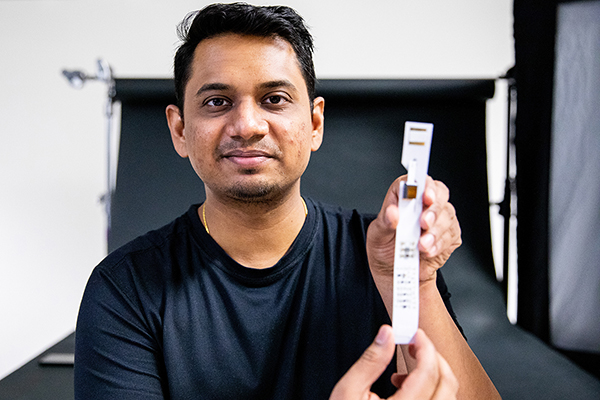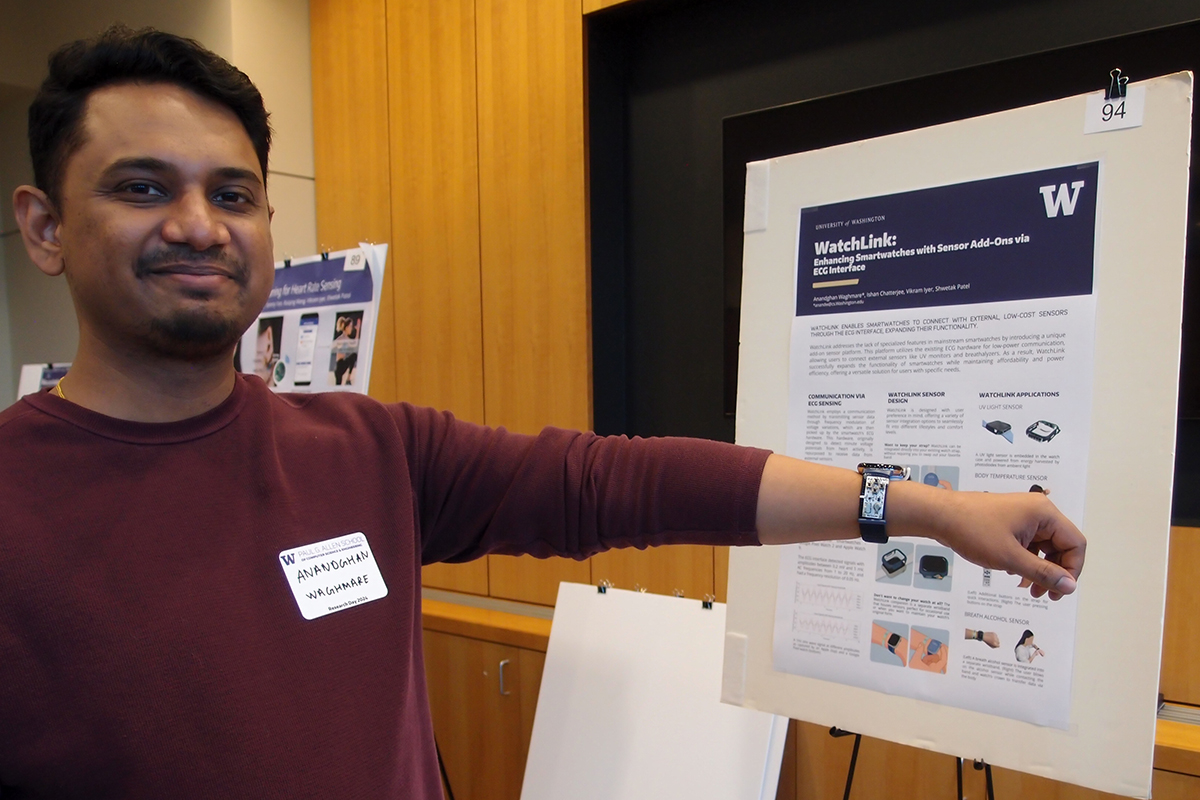In honor of the late Allen School professor Gaetano Borriello, whose work focused on applying mobile technologies to tackle issues of global equity and social and environmental justice, the ubiquitous computing community each year recognizes Ph.D. students who are following in his footsteps.
This year, those footsteps led back to the Allen School when Ph.D. student Anandghan Waghmare won the 2024 Gaetano Borriello Outstanding Student Award at the ACM International Joint Conference on Pervasive and Ubiquitous Computing/International Symposium on Wearable Computing (UbiComp/ISWC) in Melbourne, Australia, in October. Waghmare’s contributions to the ubiquitous and pervasive computing field, the societal impact of his work as well as his community service embody Borriello’s legacy and research passions.
“This award means a lot to me. I always looked up to and respected each year’s winners for their good work and research,” Waghmare said. “This award is a significant honor in the UbiComp community.”
The focus of Waghmare’s thesis is investigating ways to add small and inexpensive pieces of hardware to existing devices to make them do more than they were designed to do. For example, Waghmare designed a smartphone-based glucose and prediabetes screening tool called GlucoScreen. More than one out of three adults in the country has prediabetes, or elevated blood sugar levels that can develop into type 2 diabetes, according to the U.S. Centers for Disease Control (CDC). However, more than 80% do not know they have the condition which can lead to complications such as heart disease, vision loss and kidney failure, the CDC found.
Current blood testing methods require visits to a health care facility, which can be expensive and inaccessible especially to those in developing countries, Waghmare explained. With GlucoScreen’s low-cost and disposable rapid tests, patients can easily screen for prediabetes at home without the need for additional equipment, and potentially reverse the condition under the care of a physician with diet and exercise. The research was published in the Proceedings of the ACM on Interactive, Mobile, Wearable and Ubiquitous Technologies (IMWUT) and presented at last year’s UbiComp/ISWC conference.
“A lot of technology is already built into these devices like smartphones — the computer power, the networking, the display,” Waghmare said. “I try to leverage everything in existing devices and add what’s missing and find clever engineering ways to do it.”
His other projects follow a similar theme. He developed WatchLink, which enables users to add additional sensors to smart watches to measure UV light, body temperature and breath alcohol levels. This research paves the way for building more cost-effective ways for personalized user-centric wearables. Waghmare also works on building wearable devices for intuitive input, such as the Z-Ring wearable that uses radio frequency sensing to facilitate context-aware hand interactions.
“Anand’s work would make Gaetano so proud given the focus on solving socially meaningful problems in a practical way using clever hardware/software solutions,” said Shwetak Patel, Waghmare’s advisor in the University of Washington’s UbiComp Lab and the Washington Research Foundation Entrepreneurship Endowed Professor in the Allen School and the UW Department of Electrical & Computer Engineering.

Outside of his research contributions, Waghmare is heavily involved in community service and mentorship. Since 2019, he has been a peer reviewer for multiple conferences including IMWUT, Human Factors in Computing Systems (CHI) and the International Conference on Interactive Surfaces and Spaces. This year, he also volunteered as video previews co-chair at the ACM Symposium on User Interface Software and Technology (UIST), web co-chair at the International Symposium on Mixed and Augmented Reality and special topic session chair at the ACM Symposium on Spatial User Interaction. In upcoming 2025 conferences, Waghmare is serving as publications co-chair at CHI, video previews co-chair at UIST and registration co-chair at UbiComp.
At the same time, Waghmare has been working on encouraging more students to pursue STEM fields. This includes exposing students to research early in their careers and sharing his own work and experiences, as well as hosting high school students over the years. For Patel, Waghmare is a “great citizen of the research community.”
“I am excited and honored to join the ranks of the amazing researchers who have won this award before me, and I hope to inspire other Ph.D. students to apply because you never know,” Waghmare said.
Read more about the Gaetano Borriello Outstanding Student Award.


